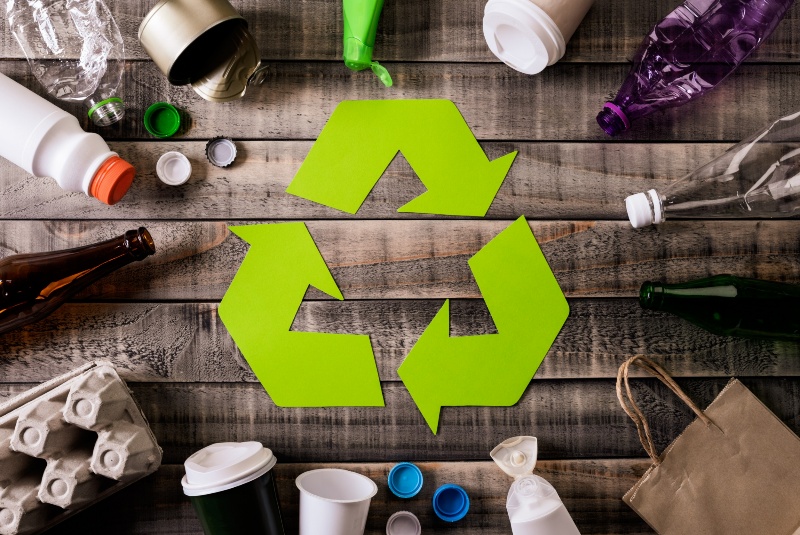The world is facing an alarming level of pollution and waste that threatens not only our health but also the planet's well-being. The issue of waste management has become a growing concern for many people around the globe, and this has led to the emergence of a new lifestyle – zero-waste living. Zero-waste living involves reducing the amount of waste generated in our homes and workplaces. It is a way of life that aims to eliminate the production of garbage by promoting a circular economy, where waste is seen as a resource and not as a problem. In this article, we will explore how you can save money while helping the environment by adopting a zero-waste lifestyle.
- Reuse and recycle
One of the most effective ways to reduce waste is to reuse and recycle items. This can be achieved by repurposing old items and buying products made from recycled materials. By doing so, you not only reduce the amount of waste generated but also save money on buying new items. For instance, you can reuse glass jars to store food instead of buying plastic containers. You can also use old clothes to make rags or donate them to charity. By reusing and recycling items, you can save money and contribute to a cleaner environment.

- Say no to single-use plastics
Single-use plastics, such as straws, plastic bags, and water bottles, are a major contributor to plastic pollution. They are designed for a single use and are often discarded after a few minutes, leading to a huge pile-up of plastic waste. By saying no to single-use plastics, you not only reduce the amount of waste generated but also save money. For instance, instead of buying bottled water, you can carry a reusable water bottle with you. You can also carry reusable bags when shopping instead of using plastic bags. By saying no to single-use plastics, you can reduce your environmental footprint and save money.
- Composting
Composting is another effective way to reduce waste and save money. It involves collecting organic waste, such as vegetable and fruit scraps, and creating a compost pile or bin. Composting not only reduces the amount of waste sent to the landfill but also creates a nutrient-rich soil amendment that can be used for gardening. By composting, you can save money on fertilizers and contribute to a healthier environment.
- Buy in bulk
Buying in bulk is an effective way to reduce waste and save money. It involves purchasing items, such as grains, nuts, and spices, in large quantities and storing them in reusable containers. By buying in bulk, you not only reduce the amount of packaging waste generated but also save money on buying individual packages. For instance, instead of buying individual packages of snacks, you can buy a large bag of snacks and store them in reusable containers. By buying in bulk, you can reduce waste and save money.
- DIY products
Another way to reduce waste and save money is to make your own products, such as cleaning supplies and personal care products. DIY products are often made from natural ingredients and are free from harmful chemicals found in commercial products. By making your own products, you not only reduce the amount of waste generated but also save money on buying commercial products. For instance, you can make your own cleaning supplies using vinegar and baking soda instead of buying commercial cleaners. By making your own products, you can reduce waste and save money.
Living a zero-waste lifestyle does not mean that you have to give up on the things you love or live an uncomfortable life. Instead, it means being mindful of the things you buy, use, and throw away. By reducing your waste, you can also reduce your carbon footprint and the amount of energy required to produce new products. This, in turn, reduces your impact on the environment and helps preserve natural resources.
In addition to the benefits mentioned above, living a zero-waste lifestyle can also improve your mental and physical health. By adopting a minimalist lifestyle, you can reduce stress and improve your overall well-being. You can also reduce your exposure to harmful chemicals found in commercial products, which can have long-term health effects.
To get started with zero-waste living, you can start by identifying areas in your life where you can reduce waste. This could involve reducing your plastic consumption, composting your food waste, or making your own cleaning products. You can also join zero-waste communities or attend workshops to learn more about the lifestyle and connect with like-minded individuals.
Zero-waste living is a lifestyle that is not only good for the environment but also for your wallet and well-being. By making small changes to your lifestyle, you can reduce your environmental impact, save money, and live a more fulfilling life. So why not take the first step towards a zero-waste lifestyle today? Your wallet, your health, and the environment will thank you.
